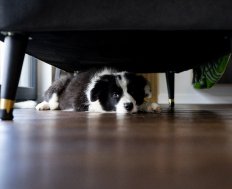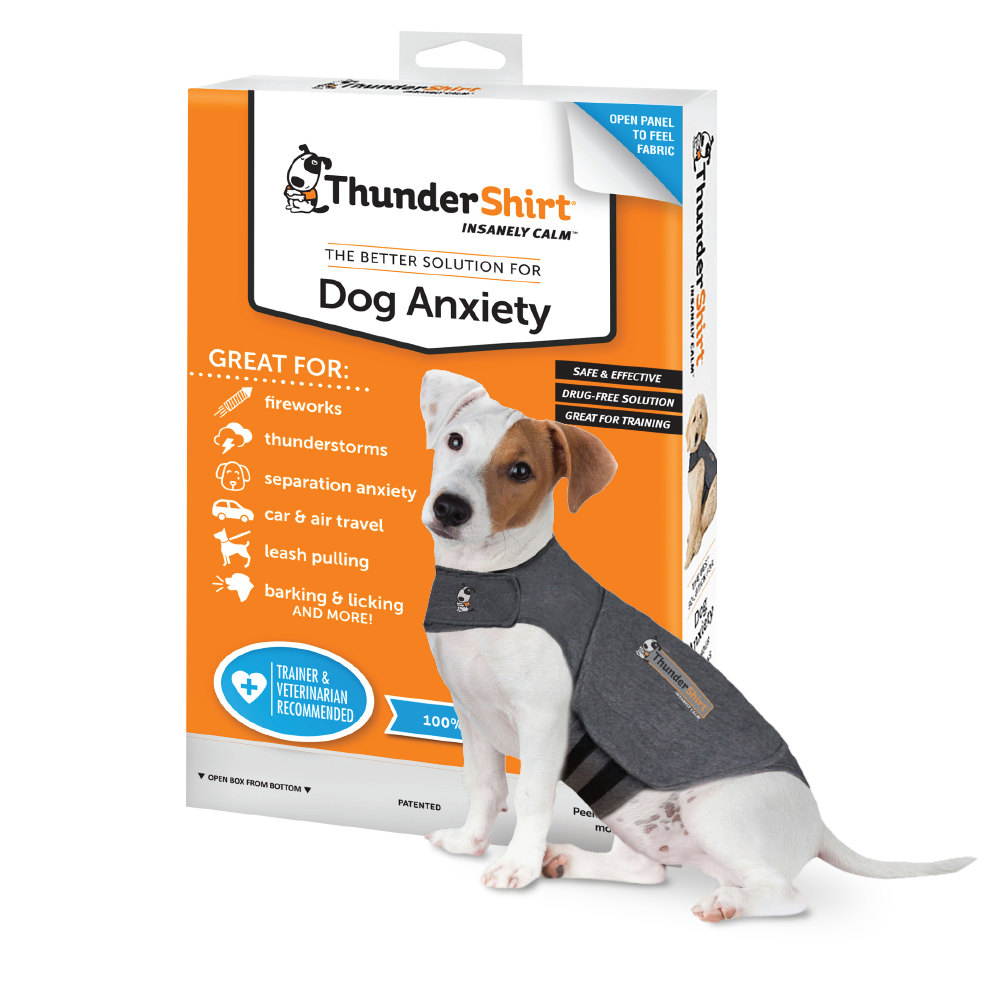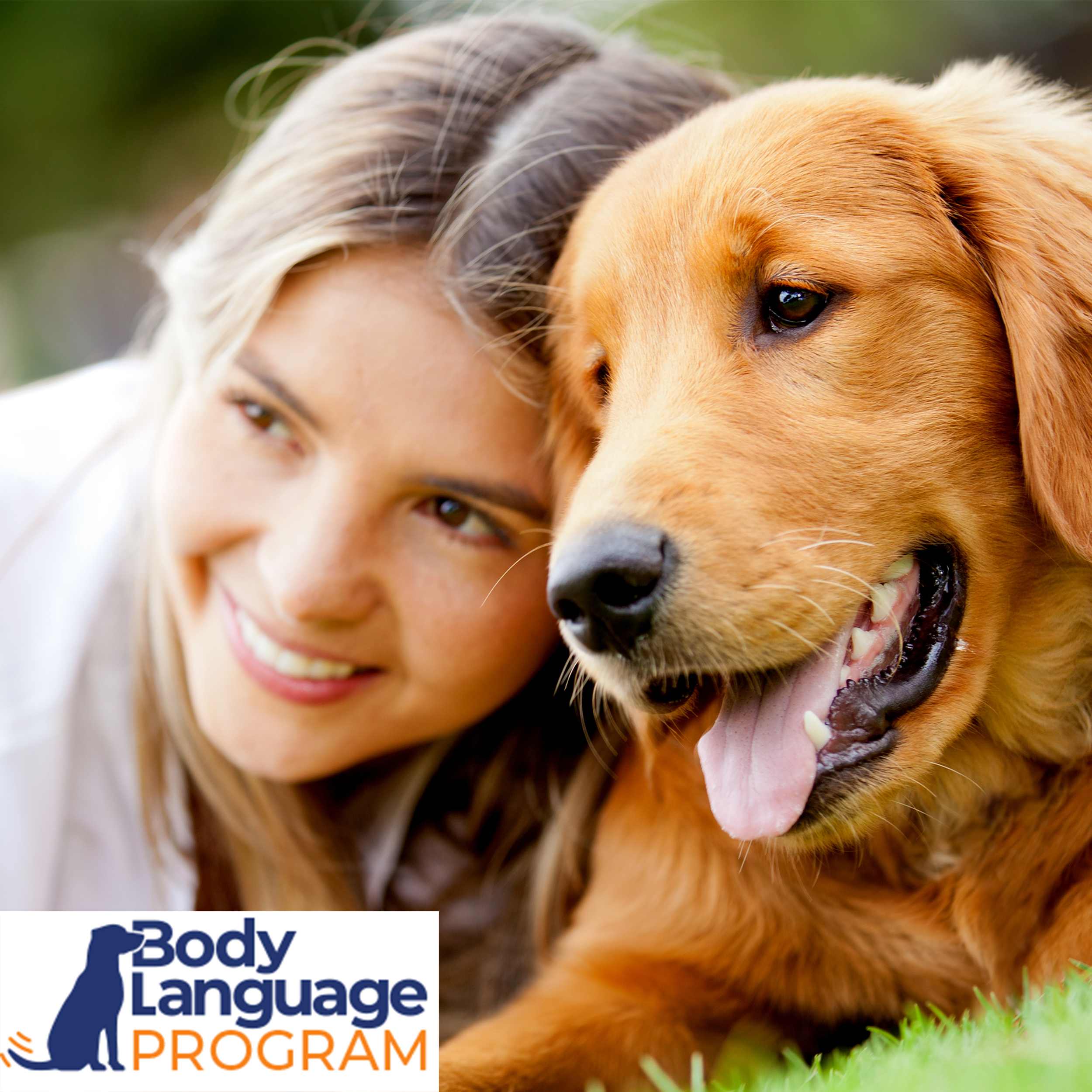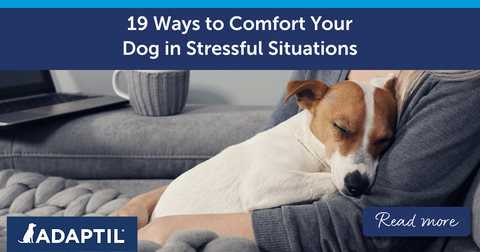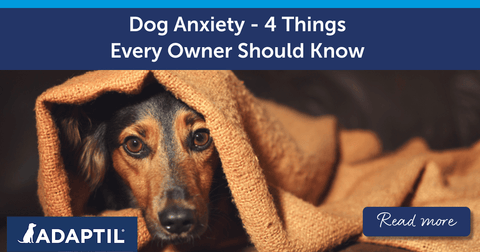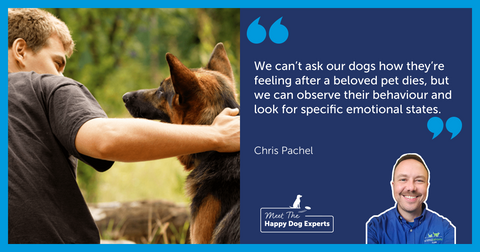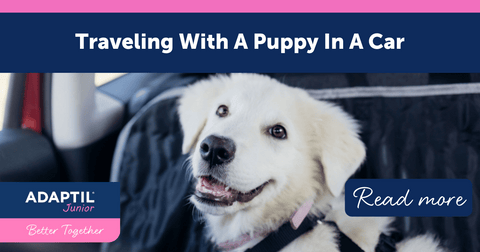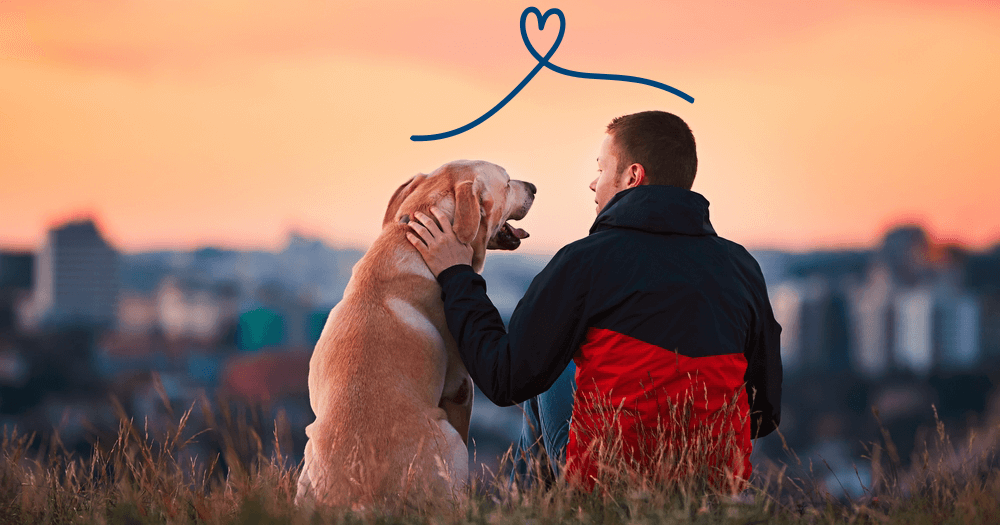
How To Calm An Anxious Dog
Does your dog dread trips to the vet, loud noises such as fireworks, or unexpected situations such as new visitors? Faced with a new, unusual or unfamiliar situation, it's perfectly normal for your dog to be nervous, anxious or fearful!
But if you learn how to tell when your dog is nervous and understand why they feel afraid, you'll be better able to calm them.
Why Is My Dog Nervous?
Just like humans, there are lots of reasons dogs can feel fearful. Sometimes all it takes is something new and unfamiliar to make them feel uncomfortable. Your pet's personality and disposition, age and general health will also impact how easily spooked they are.
A few common doggy anxiety triggers include:
- Loud noises. Your dog has sensitive ears! Sounds such as fireworks, loud music, you may find that your dog is scared of the vacuum cleaner! Even traffic may all be scary or surprising to them.
- New people. Strangers can be scary too! Don't be surprised if your dog is wary or nervous around new people.
- Other animals. Not all dogs are super-social! Your pet needs time to adjust when meeting new furry friends.
- Changes in their environment. Our pets like familiar, comforting, routine environments to feel safe. Any change in environment, from a new location, to decorating, to an unfamiliar floor surface could cause your dog to worry.
- Car rides. While a ride in the car may seem fun, your dog may not understand what's happening when they're in the car, and find the movement unsettling, particularly the first few times they join you for a ride!
- Separation anxiety. Leaving your dog alone can make them feel anxious, especially if they are not used to it. Training and reassurance can help however, and there are lots of ways to minimise doggy discomfort when leaving them alone.
- Age. Sometimes older dogs may experience a gradual loss of awareness, memory and perception known as cognitive dysfunction syndrome (CDS), which may make them anxious or confused.
- Negative experiences. Though some dogs are naturally more anxious than others, often a bad past experience or association can create ongoing anxiety issues.
For many dogs, socialisation training as a puppy (from 8 - 16 weeks, and again at 5-8 months) is the best way to prevent later anxieties and fears. Exposing your dog to a wide range of situations, people and experiences is a good way to calmly build their curiosity, rather than have them react fearfully to unfamiliar circumstances.
How Can I Calm A Nervous Dog?
Don't give your pooch attention!
When you know your dog is nervous or afraid, your first reaction will probably be to pet and comfort them. However, this can reinforce fearful behaviours and make them worse in the future.
The best thing to do is to remove any environmental triggers where possible, and wait for your pet to calm down. Don't make a fuss or reward your pet with attention or treats while they are afraid as this will make them think it is normal to be afraid.
Learn to identify when your dog is nervous
The best way to help your dog is to learn to understand them! Learn to identify when they feel anxious, and what triggers their fear. That way you can either help them to avoid scary situations, or gradually train them to stay calm around unfamiliar or frightening things.
Take a look at our Calming Music for Dogs Playlist on YouTube for 15 hours of relaxing sounds to help your dog stay calm.
Seek professional help
Some very anxious pets may need additional help and support to relax. Speaking to your vet will allow you to rule out any health-related issues. If your dog is healthy, training with a qualified behavioural specialist can ease your pet's anxieties, desensitise them and develop preventative strategies that will comfort your dog.
Try an ADAPTIL Calm Home Diffuser
Creating a relaxing home environment will ensure your dog feels safe and calm. ADAPTIL Calm Home Diffuser supports your dog, and helps them stay calm in stressful situations such as when they are home alone, or when you have visitors. This way, you can help to reassure your dog and provide constant comfort to them.


